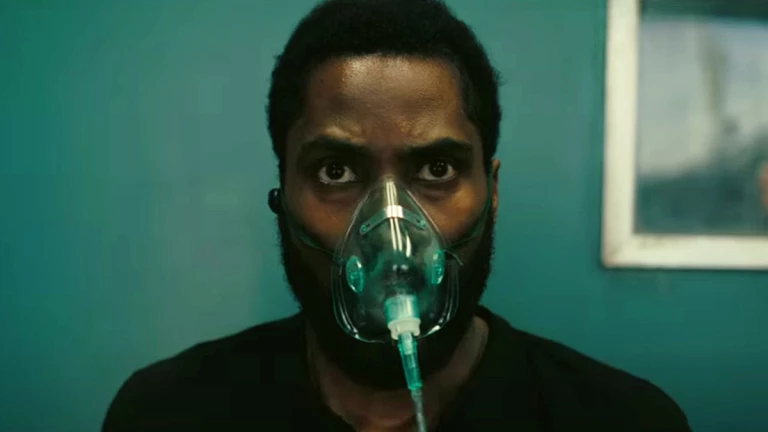When the COVID-19 pandemic struck the world in March the film industry was immediately hit hard. Cinemas quickly shut, with no one able to predict when they would be able to safely open. Most big-budget Hollywood fare due to reach theaters over the US summer were swiftly rescheduled to the end of the year, or even 2021.
However, two films stubbornly refused to be pushed back: Disney’s Mulan and Warner Bros.’ Tenet. Mulan is another of Disney’s big budget live-action remakes of its animated properties, while Tenet is a new mind-bending thriller from director Christopher Nolan (Inception, The Dark Knight, Interstellar).
Over the past few months these two films have been playing a game of chicken with release dates. Disney originally pushed Mulan back from March to July, following Tenet. Then Warner Bros. pushed Tenet back a fortnight, and so the games began. No studio wanting to be the first to drop a massive blockbuster into a pandemic world, but both studios optimistically hoping the virus would wane allowing cinemas to start up again.
The Mulan/Tenet game of tag offered some hope to theaters aiming to reopen with a big cinematic drawcard to pull audiences in. But as the months passed it became increasingly clear cinemas would not be opening safely any time soon, at least in the United States. And even when cinemas do open, they will be profoundly different experiences with social distancing, PPE measures and reduced capacities to try and mitigate viral transmission.

The theatrical path
Over the past week the paths of these two key films finally diverged. Warner Bros., looking at international territories slowly reopening their cinemas, decided to release Tenet around the world from August 26. From September 3, “select” cinemas in the United States will begin playing the film.
Although most American states currently allow indoor theaters to operate in some capacity, the lack of any new big film to pull the audiences back means most cinemas have remained closed. It's still unclear exactly where in the United States Tenet will play come September 3. Some estimates suggest around 80 percent of theaters in the country could technically play the film by early September, but it surely will be a controversial scenario considering the wild spread of the virus.
Releasing a hotly anticipated movie and compelling audiences to sit in enclosed spaces for several hours amidst the worst viral pandemic in over a century seems like a risky gambit. But cinemas around the country are already starting to go out of business, and without some kind of income soon the entire US theater industry could collapse.
Much remains unclear about how this unusual staggered international release will play out, but the line in the sand has been drawn. Warner Bros. will not delay Tenet’s release until next year, and it will certainly not debut it on a streaming service. The film’s director Christopher Nolan has long been a vocal advocate of theatrical exhibition, and some reports have suggested Nolan himself is responsible for the vociferous push to release this film sooner rather than later. The director reportedly sees the film as a lifeline for theaters struggling with indefinite closure.

The streaming path
Disney, on the other hand, seems done with attempts to get its big blockbuster into cinemas. Now, Mulan is set to get a worldwide streaming release on Disney Plus. From September 4 (coincidentally the same weekend as Tenet’s current US theatrical release) the film will be available for a US$30 fee in territories around the world with access to Disney Plus.
Of course, a large swathe of the world does not currently have access to Disney Plus, and many regions, including China, will still play the film in theaters. Nevertheless, Disney suggests it already has amassed more than 60 million global subscribers to its streaming service, so it would only need a small percentage of those subscribers to shell out the extra money for Mulan to make this unprecedented experiment financially worthwhile.
Both Tenet and Mulan cost over $200 million to produce. They are big investments for their respective studios, and big drawcards for cinemas, many of which have been shuttered for months. However, Hollywood economics are complicated, and it is often suggested a film needs to gross at least three times its production budget to at least break even.
You see, cinemas roughly take around 50 percent of every ticket sold for their own costs, while a studio’s advertising spend for a blockbuster often reaches numbers rivaling the film’s original production budget. Assuming both films would need a worldwide theatrical gross of over $600 million to come close to breaking even it is no surprise every big studio is postponing their major releases until the majority of cinemas around the world can open with something nearing normal capacity.
But digital releases are a different economy. Disney owns Disney Plus, and it will take 100 percent of every $30 payment people shell out to stream Mulan. So conceivably, if as little as 10 million people around the world shell out for a Mulan stream over the first few weeks of its release Disney could at least make its money back.
And if that happens, you can imagine how unhappy theaters will be…
La réaction d’un exploitant suite à la décision de Disney... #Mulan pic.twitter.com/I2uWICofve
— Destination Ciné (@destinationcine) August 6, 2020
The early experiment
Early in the pandemic Universal studios shifted its big animated family film Trolls World Tour from theaters to video on demand. For $20 families at home could watch the latest entry in this popular franchise. Within three weeks this novel strategy had made the studio an astounding $100 million, with no pesky 50/50 cut to theaters or large advertising spend.
AMC, the largest theater chain in the United States, quickly hit back banning all Universal films from its locations. The existential threat to the traditional theatrical business model was clear. If studios can produce films, release them digitally, and still make a profit, then who needs cinemas?
Since then AMC and Universal have come to an agreement, shrinking the traditional window of time theaters are allowed to exclusively play new films down from the traditional 90 days, to a remarkably short 17 days. This groundbreaking agreement, dismantling the extensive release window that privileged theaters for decades has not been taken kindly by other big theatrical chains in the country.
To assuage cinema owners concerns over this unusual Mulan digital strategy, Disney's CEO recently stressed the release is a "one-off" and not a new business model. The studio's next big Marvel movie, Black Widow, is still scheduled for a theatrical release in November (after initially having its May release canceled).
At least, that's the plan for now ...

The crossroads
So now the entire film industry is at a crossroads. Cinemas across the United States are still mostly closed, and realistically unlikely to open any time soon. Around the world, many regions have reopened cinemas, albeit with majorly reduced capacities. Sporadic viral spikes in different countries over the coming months will inevitably mean many cinemas currently open could close at a moment's notice. So even if Tenet does begin to play around the world later in August it is impossible to predict where it will play, and how much money it could make. Mulan’s fate, on the other hand, is much clearer. It will be available to watch at home for all Americans from early September.
Everyone in Hollywood will surely be watching the fate of these two release strategies over the next six weeks. This is about more than whether a massive Hollywood studio will lose a few dollars on a big budget movie. It is about the future of cinema, the medium that defined popular culture for most of the 20th century.
Theatrical exhibition will surely continue to exist no matter how this all plays out. People will always want the experience of watching a movie on a giant screen in a big cinema with a boisterous audience. But the primacy of that medium may be dying in front of our eyes, and cinema operators around the world are realizing that a film playing in theaters may no longer be the number one revenue raiser for a studio in the future.
Will theaters survive the 2020 pandemic? Not all of them, but some will. Either way, come 2021, things will certainly look very, very different. The film industry is at a crossroads. And whichever way things turn out, it will hinge on the success or failure of two very different films, and two very different release strategies.




